 A demonstrator's sign at the 1 May demo outside the Washington DC UK embassy supporting Kiana (thanks to our reporting), Bita Ghaedi, Nadia Arzane & Bashir Foris. They chanted:
A demonstrator's sign at the 1 May demo outside the Washington DC UK embassy supporting Kiana (thanks to our reporting), Bita Ghaedi, Nadia Arzane & Bashir Foris. They chanted:
We don’t want to lose
Kiana Firouz
Nadia and Bashir:
let them stay here!
Refugees have rights!
Refugees have rights!By Paul Canning
By the time Kiana Firouz finally won 'leave to remain' in the UK last Thursday she had become the most well-known lesbian asylum seeker ever with over 45,000 signing an online petition.
When I first heard of her at the beginning of April it was due to
one article on Radio Free Europe's website about the film she had made with Ramin Goudarzi-Nejad and Mahshad Torkan.
So I contacted Mahshad and through her
a statement from Kiana was published on LGBT Asylum News. This was tweeted and Facebooked and that's where it all began.
A week after her statement appeared here
her petition, started for her by Mahshad, had gone from a few hundred derived largely from the Iranian disapora to several thousand. I watched as Kiana's case reverberated online through feminist, lesbian, human rights, political and many, many other networks connected by the Internet.
Within a couple of weeks I was fielding inquiries from The Times, CNN, BBC and others as well as numerous offers of help. But Kiana wasn't talking, and with good reason. She took the well-founded advice of her solicitor.
The UK Home Office's case for rejecting her was based on whether she was well-known to the Iranian authorities or not - i.e. whether she could be safely returned. At her appeal in March (her first case would likely have been thrown out anyway -
almost all sexual orientation asylum cases are - but it wasn't handled well) the elderly judge refused to believe that the Iranians would pick up on the early publicity for her film which even by then had seen
the YouTube trailer have thousands of views. Incredibly, he hadn't heard of the sophistication of the Iranian's internet monitoring operation (thanks amongst others
to Siemens) and rejected her appeal despite accepting that she was lesbian.
As the publicity grew, destroying their argument for rejecting her asylum claim with each inquiry from a journalist referred on by me to her solicitor and then passed on to her case worker at the UK Border Agency, there remained the possibility of simple belligerence and obstinacy by the Home Office, something
I've reported on here time and again. Nothing was ever 100% certain - they might think the publicity 'fabricated'.
But it wasn't just the legal advice which meant silence, Kiana was also having a hard time processing the attention. This led to her missing even the premiere of her film last month in London, attended by hundreds largely from the Iranian exile community in London and including many celebrated artists.
For me this was completely understandable but frustrating. We had discussed releasing a statement (something her solicitor agreed to) to answer all the interest and now it can be released. This is what we'd agreed (minus the information that a fresh claim had been lodged):
Dear All,
I would like to thank you for all of your supports, comments and messages. The number of signatures made on my petition overwhelms me. Your supports and your kind letters create enormous hope and courage for all of those who are discriminated for their beliefs and sexual orientation in Iran and all over the world.
I am just an example of an Iranian lesbian who has suffered from injustice and discrimination in a religious country. There are thousands of Iranian LGBT who are suffering and getting tortured by their families and the society for their sexual orientation inside Iran. However I believe that even those who are outside of Iran are facing so many difficulties as well.
I am not the only lesbian or gay person who has been refused asylum by the UK. In its report 'Failing the grade', the UK Lesbian and Gay Immigration Group examined 50 refusal letters and found that 98-99% of claims made by LGBT were being refused compared to 73% for claims made on other grounds.
This includes Iranians but it also includes Iraqis - even since the situation for gays in Iraq, which includes militias systematically hunting them down and killing them, became widely publicised they have been refused. I would like to express my solidarity particularly with Iraqis and the claim for asylum by their leader, Ali Hili.
I would like to draw the attention of all those supporting me to the plight of many other lesbians and gays caught up in the UK asylum system. I would hope that the new British government will take a look at their situation as well as mine.
I hope, this open further opportunity and movement toward an open society in Iran for everyone regardless of their sexual preferences. I also hope to see a day that injustices, tortures and the death penalties that the homosexuals face in Iran be stopped.
Kind regards,
Kiana Firouz
Kiana understood that there were others in the same boat as her but not so well known and agreed with me that those supporting her should know this. I am aware not just through campaigning or working behind the scenes for other specific LGBT asylum seekers but also through the annoyance of those who work on cases when just one gets picked up on, especially by the short-termist media, that it's the UK system which needs, desperately needs, reform.
Many others fall through the cracks, don't get good legal or community support - many are removed back to an unknown fate.
In 2005 26 year old gay Iranian Hussein Nasseri shot himself in his car at a children's playground in Eastbourne days after hearing his second appeal against a Home Office decision to refuse him asylum had failed and that he was to be removed.
Three years ago 27 year old gay Iranian Shahin Portofeh was reduced to sewing his lips and eyes together in desperation to avoid once more being deported. Previously returned to Tehran, he was jailed, lashed, tortured and ultimately faced execution. He somehow managed to escape from custody and return to the UK. Eventually Shahin was allowed to stay.
Kiana does not have asylum, she has 'leave to remain' for five years. This is based on the idea that in five years it might be safe for her to return. Another Iranian lesbian who I know has this status and it is no way to live - to plan ahead with your life, to return to study and a career after spending, as she had done, several years fighting for even this bit of security. She remains terrified that they will, next year, put her back into detention and then send her back. She also remains in grief because of the partner she left behind, believed to be still in jail.
The British government doesn't take LGBT Iranian refugees (from the UNHCR programme) and in case-after-case it has made it as hard as possible for them to secure sanctuary in the UK. As it showed in the case of Mehdi Kazemi (previously the 'world's most famous gay asylum seeker'),
officially it believes the Iranian government's lies about life for LGBT in Iran. It does not, officially, believe they are actively persecuted.
They also officially believe it is safe to return to Iraq. Gay cases have been refused during the past two years when there have been several human rights reports as well as major media reports on the pogrom going on in that benighted country for LGBT. Yet the Foreign Office refuses to condemn the Iraqi government and
in its latest 'human rights report' said: "official figures do not show a significant overall increase in violence against, or systematic abuse of, the homosexual community by fundamentalists or militia groups".
Let the UK government get no gratitude from the rest of us, the thousands who have shown they care, for grudgingly doing the 'right thing', for giving Kiana her rightful sanctuary. Let it be understood just how pitiful and cowardly and shameful is our actual attitude, in this country which thinks itself nowadays a progressive 'light unto the world' on LGBT rights, to lesbian women, gay men, bisexual and transgender people unfortunate not to be born subjects of the Crown.
Let the new government understand just how awful and inhuman and homophobic an asylum system it has inherited. Let it turn what
sounds like good intentions into meaningful and thorough actions.
Let Kiana not be the first but the last.
















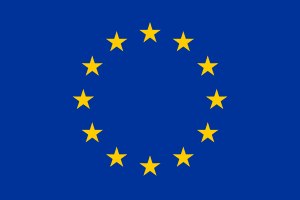

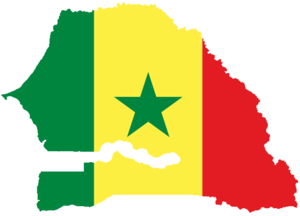


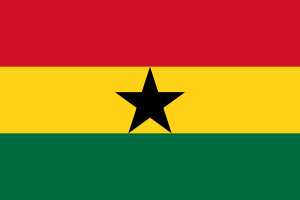




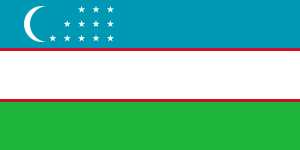





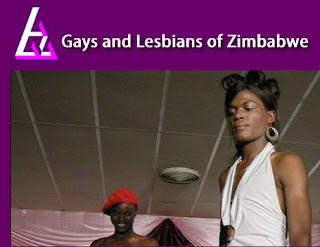















 Join our page
Join our page

